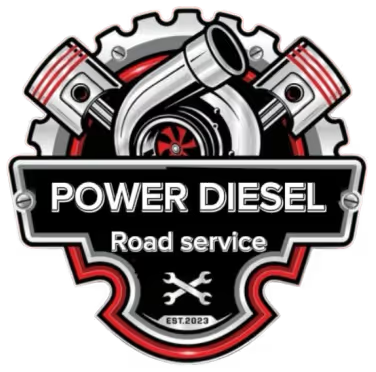When Does a Heavy-Duty Truck Need an Engine Rebuild?
Diesel engines can last up to a million miles, but signs like oil consumption, smoke, knocking, overheating, or low compression mean it may be rebuild time. In Odessa’s tough conditions, preventive care is key—act early to save money, downtime, and extend engine life.
.webp)
No matter how well you treat your rig, the day might come when your engine finally starts giving out. The question is, how do you know when it’s time to stop nursing it and start rebuilding it? Well, you’re in the right place to find out exactly when your truck needs an engine rebuild.
Common Signs Your Diesel Engine Needs a Rebuild
1. Excessive Oil Consumption
If you’re topping up engine oil more than usual, it might be your piston rings, valve guides, or seals wearing down. These components keep combustion gases from escaping and oil from seeping into the combustion chamber. When they wear out, oil burns up fast and emissions spike.
2. Blue or White Exhaust Smoke
That cloud of smoke trailing behind your truck isn't a good look, or a good sign.
Blue smoke signals burning oil. White smoke? That could mean coolant is leaking into the cylinders.
Both are red flags for major internal damage like cracked cylinder heads, blown gaskets, or warped pistons.
3. Knocking or Ticking Noises
Diesel engines are loud by nature, sure, but if you hear a persistent knocking or ticking, it could point to worn bearings, pistons, or valves. These aren’t just wear-and-tear issues; they’re mechanical time bombs.
4. Low Compression
Poor compression affects combustion and leads to loss of power, increased fuel use, and hard starts. Low compression across multiple cylinders typically means worn piston rings or cylinder walls—both rebuild territory.
5. Overheating Issues
If your engine consistently overheats, despite a working cooling system, you might be dealing with internal issues like cracked heads or failing head gaskets. These cause coolant leaks inside the combustion chamber and erode performance from the inside out.
How Long Should a Diesel Engine Last?
Most heavy-duty diesel engines can last 500,000 to 1,000,000 miles with proper maintenance. But once that odometer creeps past the 600k mark—and especially if you’re hauling heavy or running long hours in Texas heat—you need to start watching for the signs above.
Engines don’t fail all at once. They wear out little by little—until that one day they don’t start. Rebuilding before that happens saves you time, money, and potential roadside breakdowns.
What Happens During a Rebuild?
An engine rebuild is not just about slapping on new parts and calling it a day. It’s a precision process, usually involving:
- Cylinder head resurfacing
- Replacing pistons, rings, bearings, and gaskets
- Reboring or honing cylinders
- Valve regrinding or replacement
- Injector testing and cleaning
- Crankshaft polishing or machining
Sometimes, a rebuild also means updating components like the turbocharger, fuel system, or ECM if they’re no longer within spec. You’re restoring the engine to OEM or better condition—sometimes even tuning it for higher torque or better fuel economy.
Rebuild or Replace?
A full engine replacement can cost you twice as much as a rebuild. Unless your engine block is cracked or the damage is beyond repair, a rebuild is often the smarter option—especially when labor and downtime are factored in.
Ask yourself:
- Has the engine failed catastrophically?
- Do you plan to keep the truck long-term?
- Is the rest of the truck still in good condition?
If the answer to the first is “no,” and the other two are “yes,” then rebuilding makes more sense.
Don’t Ignore the Preventive Stuff
Sometimes, you can avoid a rebuild altogether with smart preventive maintenance. Here’s what to stay on top of:
- Regular oil changes (per OEM schedule)
- Coolant flushes and system checks
- Injector cleaning and calibration
- Compression testing
- Routine inspections of head gaskets and valve seals
Odessa’s heat and heavy hauls only make these more important. A little attention now beats a rebuild later.
Why Rebuilds Are Common in Odessa, TX
Out here in West Texas, trucks work harder and in hotter conditions than in most places. Oilfield hauls, long stretches of highway, and dusty terrain are brutal on engines. That kind of stress accelerates wear on components like pistons, bearings, and valves, making diesel engine rebuilds a normal part of life for trucks in the Permian Basin.
If you’re based in or near Odessa, your engine is probably aging faster than the same model running local loads up north.
Final Thoughts: Know the Signs and Act Early
When it comes to heavy-duty engines, ignoring the signs can turn a rebuild into a full-blown replacement. Keep a close eye on oil usage, smoke color, unusual noises, and performance dips. If you catch it early, you can breathe new life into your engine—without losing your truck for weeks.
